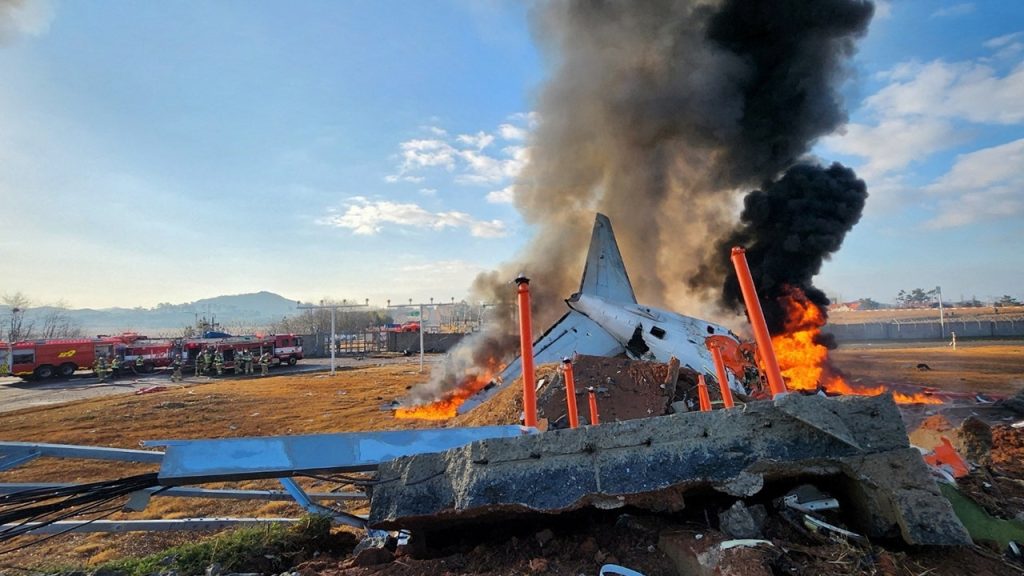The tragic crash of Jeju Air Flight [Flight Number], a Boeing 737-800, at Muan International Airport in South Korea on Sunday morning, claimed the lives of at least 177 people, marking it one of the deadliest aviation disasters in the country’s history. The aircraft, carrying 175 passengers and six crew members, was returning from Thailand when the incident occurred during landing. Initial reports from the Yonhap News Agency indicate a malfunctioning landing gear as the primary cause of the catastrophe. Upon touching down at approximately 9:07 a.m. local time, the front landing gear failed to deploy, causing the aircraft to skid off the runway and collide with a concrete fence. The impact triggered a devastating fire that engulfed the aircraft, leading to the immense loss of life.
The National Fire Agency (NFA) confirmed the grim toll, identifying 84 women and 82 men among the deceased, with the genders of 11 victims remaining unknown at the time of the initial reports. Rescue efforts yielded a glimmer of hope amidst the devastation, as two crew members were pulled from the wreckage alive and conscious. However, three individuals remained unaccounted for several hours after the crash, raising concerns about their fate. The scale of the tragedy prompted a swift response from emergency services, who battled to extinguish the blaze and search for survivors amidst the debris and smoke.
The investigation into the crash is underway, with authorities focusing on the reported landing gear malfunction. A senior Transport Ministry official confirmed the recovery of the flight data recorder, a crucial component of the aircraft’s “black box,” which will provide critical insights into the final moments of the flight. The search continues for the cockpit voice recorder, another key piece of evidence that could shed light on the actions and communications of the flight crew leading up to the crash. The combined data from these recorders will be meticulously analyzed to determine the sequence of events and pinpoint the exact cause of the landing gear failure.
The incident has sent shockwaves throughout South Korea and the international aviation community. Jeju Air, a low-cost carrier, now faces intense scrutiny regarding its safety protocols and maintenance procedures. The investigation will undoubtedly examine the aircraft’s maintenance history, the training and experience of the flight crew, and the overall operational practices of the airline. The findings will be crucial in preventing similar tragedies in the future and ensuring the safety of air travel.
While the primary focus remains on determining the technical cause of the crash, the human cost of this tragedy cannot be overstated. The loss of 177 lives represents an immeasurable tragedy for the families and friends of the victims. The South Korean government and Jeju Air have pledged support and assistance to the bereaved families, offering condolences and promising a thorough investigation to provide answers and accountability. The incident serves as a stark reminder of the inherent risks of air travel and the importance of continuous vigilance in maintaining the highest safety standards.
The aftermath of this horrific event will necessitate a comprehensive review of aviation safety regulations and practices. The findings of the investigation will likely lead to recommendations for improvements in aircraft design, maintenance protocols, and emergency response procedures. The international aviation community will closely monitor the investigation’s progress and incorporate the lessons learned to enhance global air safety. The tragic crash of Jeju Air Flight [Flight Number] stands as a somber call for continued vigilance and unwavering commitment to preventing such devastating losses in the future.










